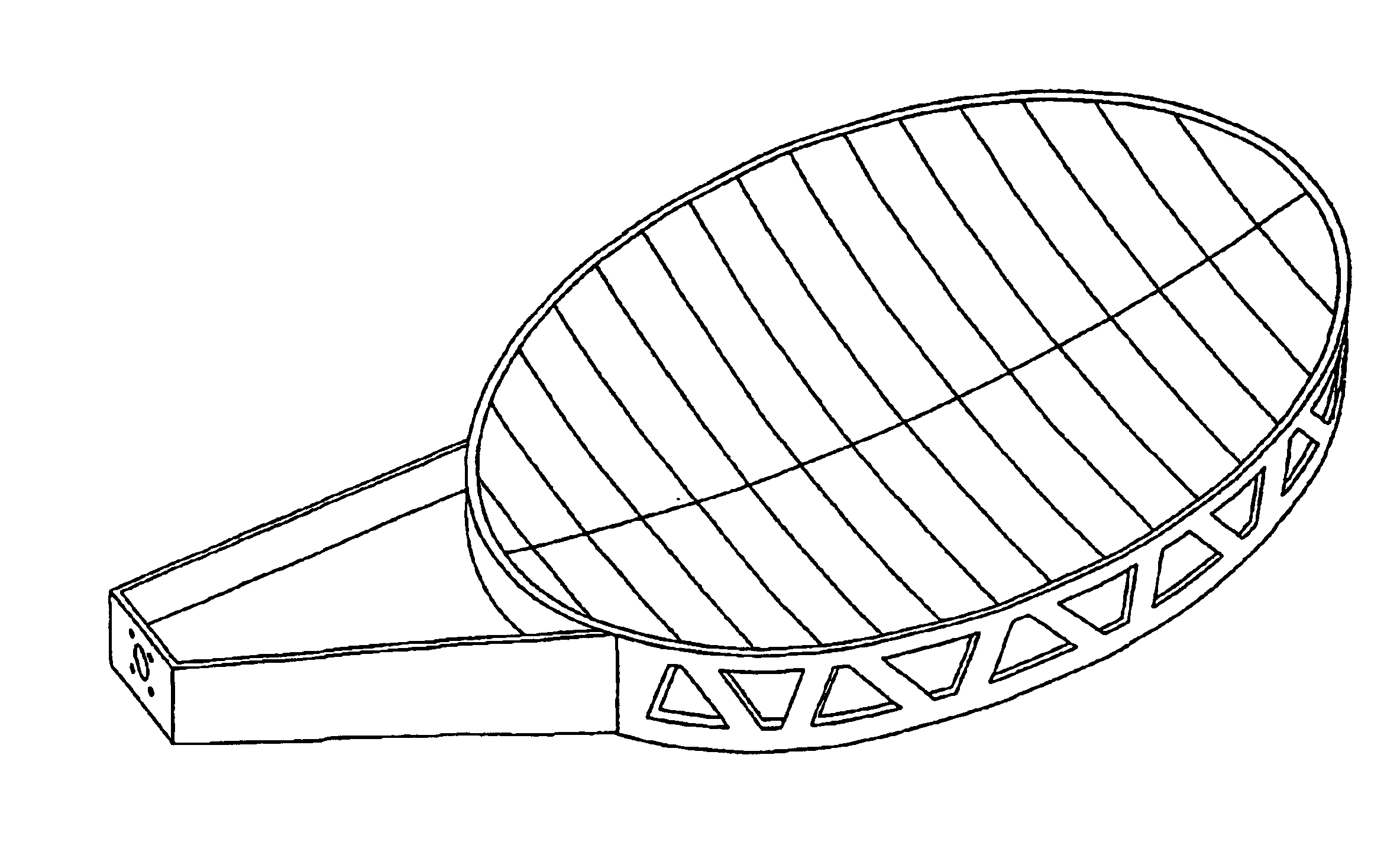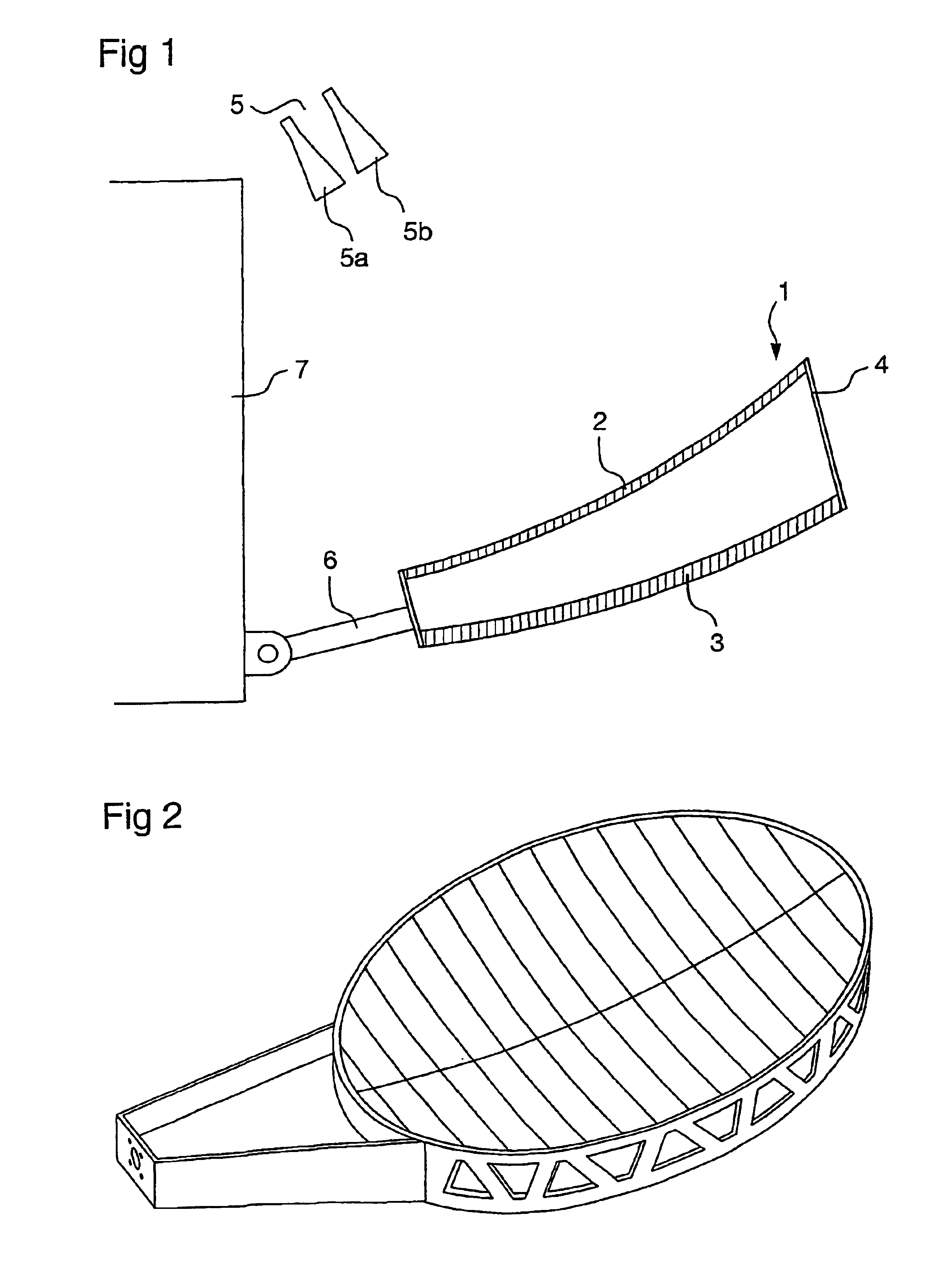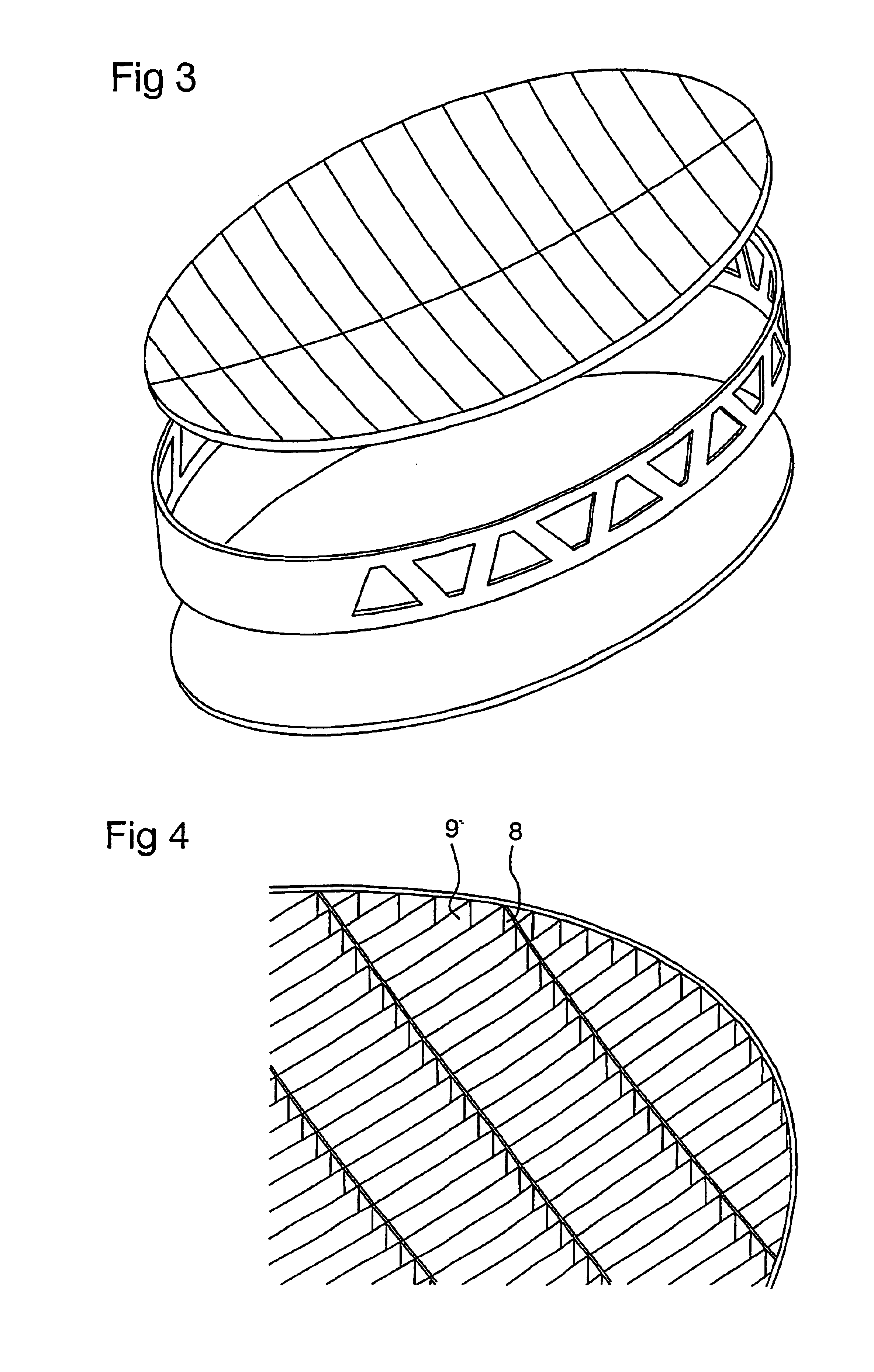Reflector and antenna system containing reflectors
a technology of reflectors and antennas, applied in the direction of antenna arrays, independent non-interfering antenna combinations, electrical devices, etc., can solve the problems of high transmission loss, inability to meet in-space requirements in rigidity and thermal stability, and antenna types that cannot be used under special conditions
- Summary
- Abstract
- Description
- Claims
- Application Information
AI Technical Summary
Benefits of technology
Problems solved by technology
Method used
Image
Examples
Embodiment Construction
[0008]One object of the present invention is to provide a reflector antenna that is an improvement over the state of the art, which means that the reflectors can function in higher frequency bands than previous design solutions, while the design of the reflector antenna is at the same time simplified.
[0009]This has been accomplished by means of a reflector according to claim 1, in which a first reflector element comprises a lattice structure of electrically conductive plates disposed at a uniform distance apart from one another, wherein the distance between the plates and the depth of said plates is adapted for the reflection of polarization parallel with the plates. The extent of each respective plate toward the second reflector element is chosen so that the transmission losses in the first reflector element are minimized.
[0010]In an alternative embodiment of the invention the plates in the lattice structure are arranged in such a way that each respective plate in the lattice struc...
PUM
 Login to View More
Login to View More Abstract
Description
Claims
Application Information
 Login to View More
Login to View More - R&D
- Intellectual Property
- Life Sciences
- Materials
- Tech Scout
- Unparalleled Data Quality
- Higher Quality Content
- 60% Fewer Hallucinations
Browse by: Latest US Patents, China's latest patents, Technical Efficacy Thesaurus, Application Domain, Technology Topic, Popular Technical Reports.
© 2025 PatSnap. All rights reserved.Legal|Privacy policy|Modern Slavery Act Transparency Statement|Sitemap|About US| Contact US: help@patsnap.com



